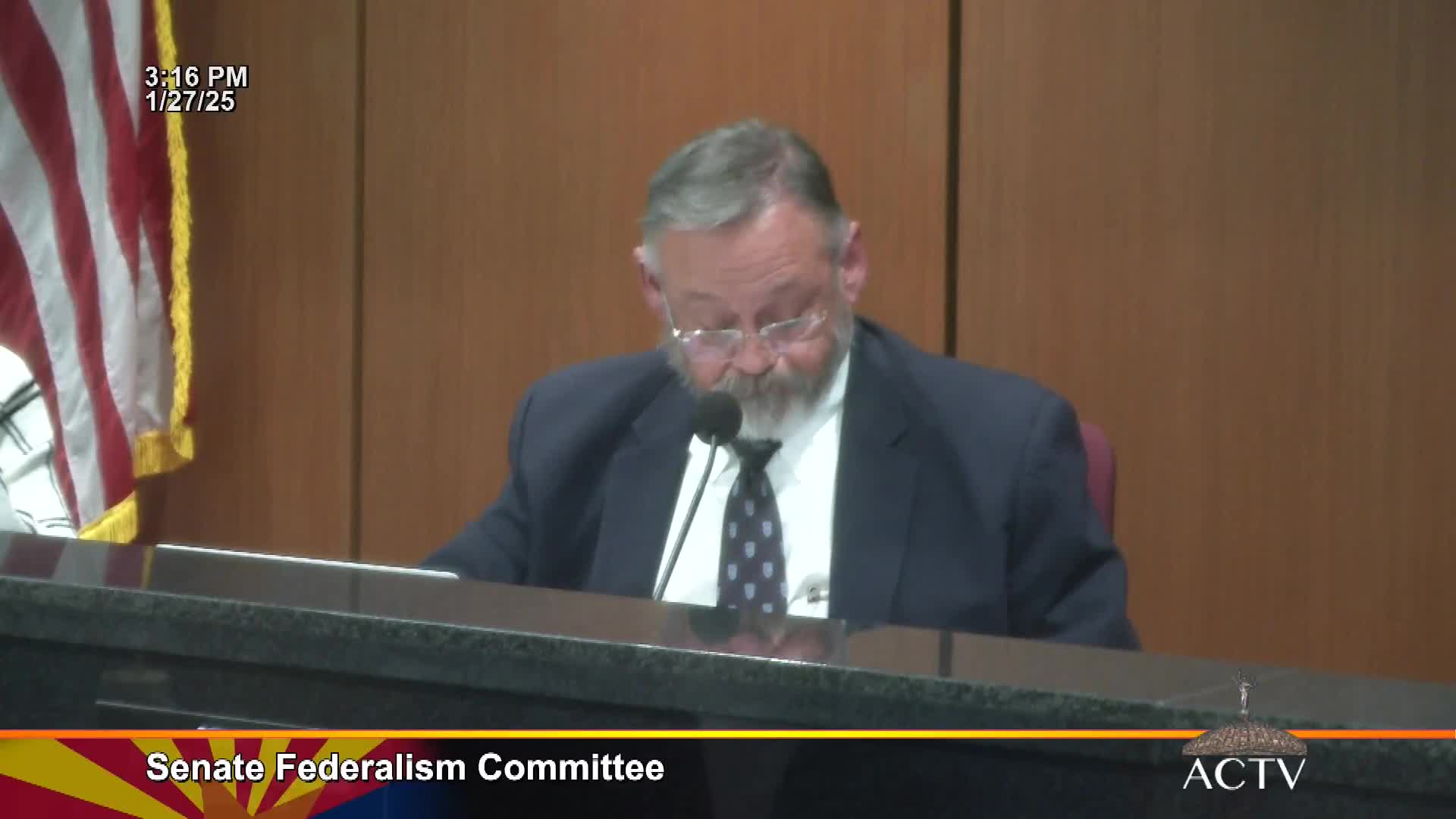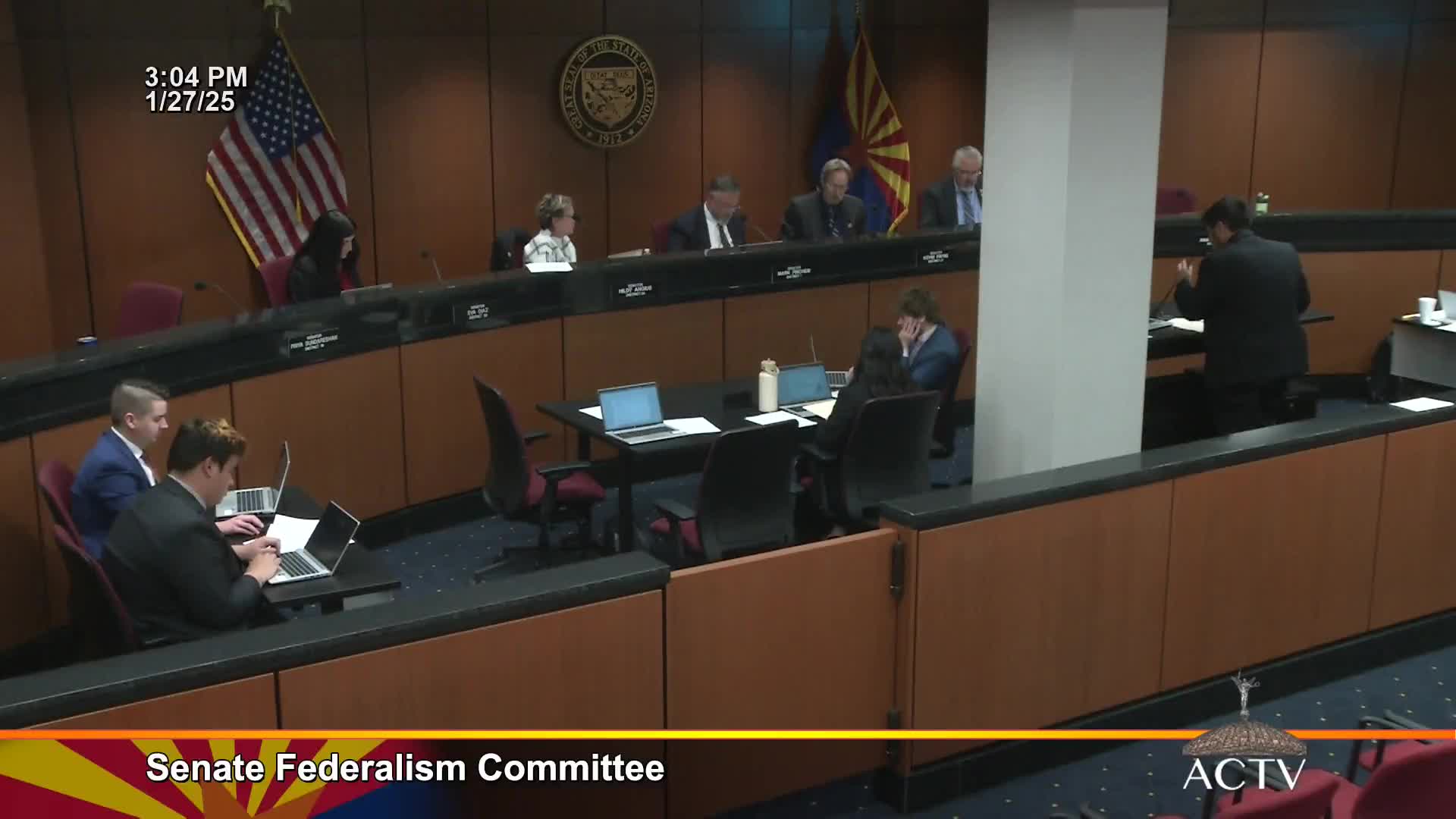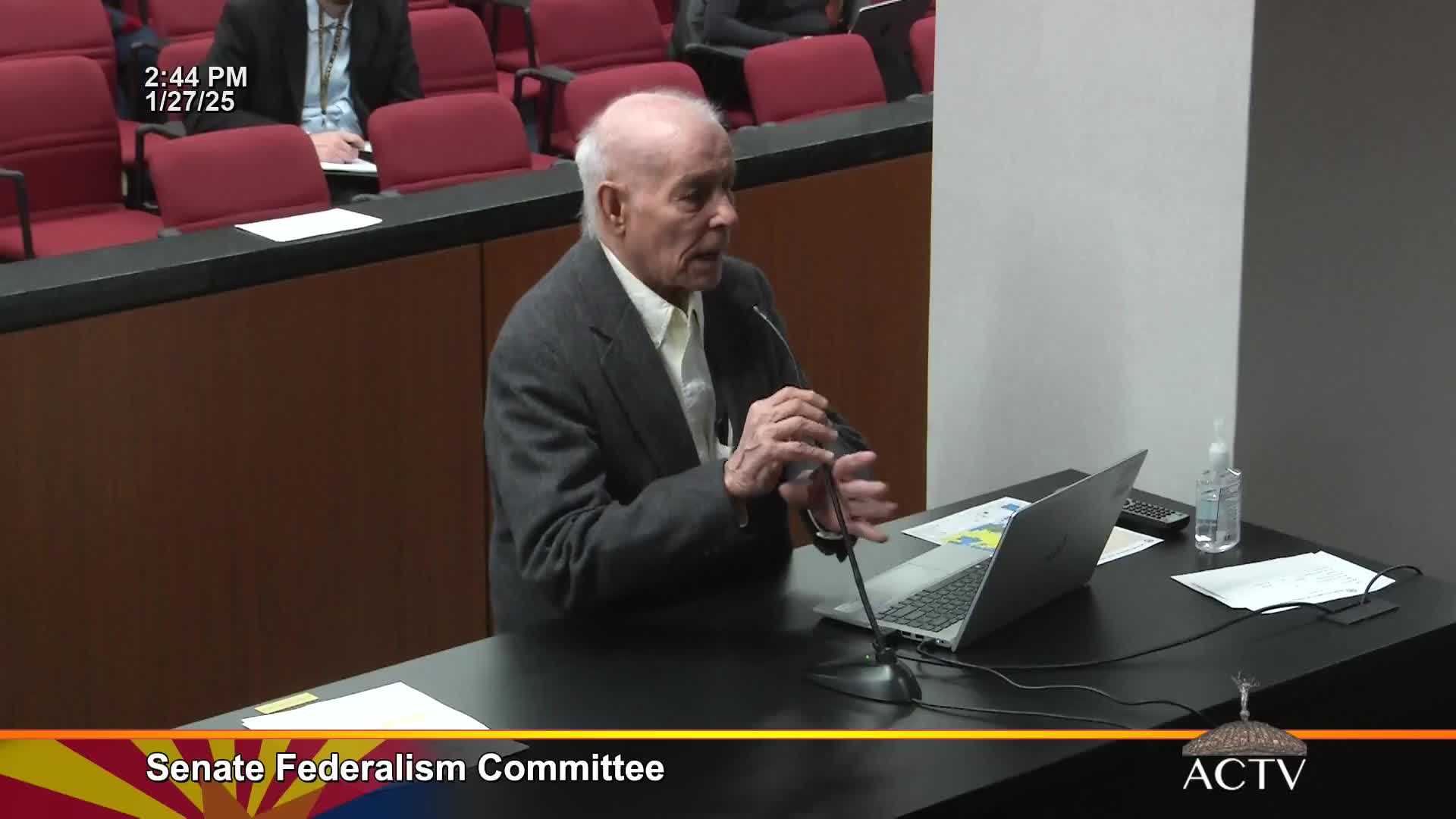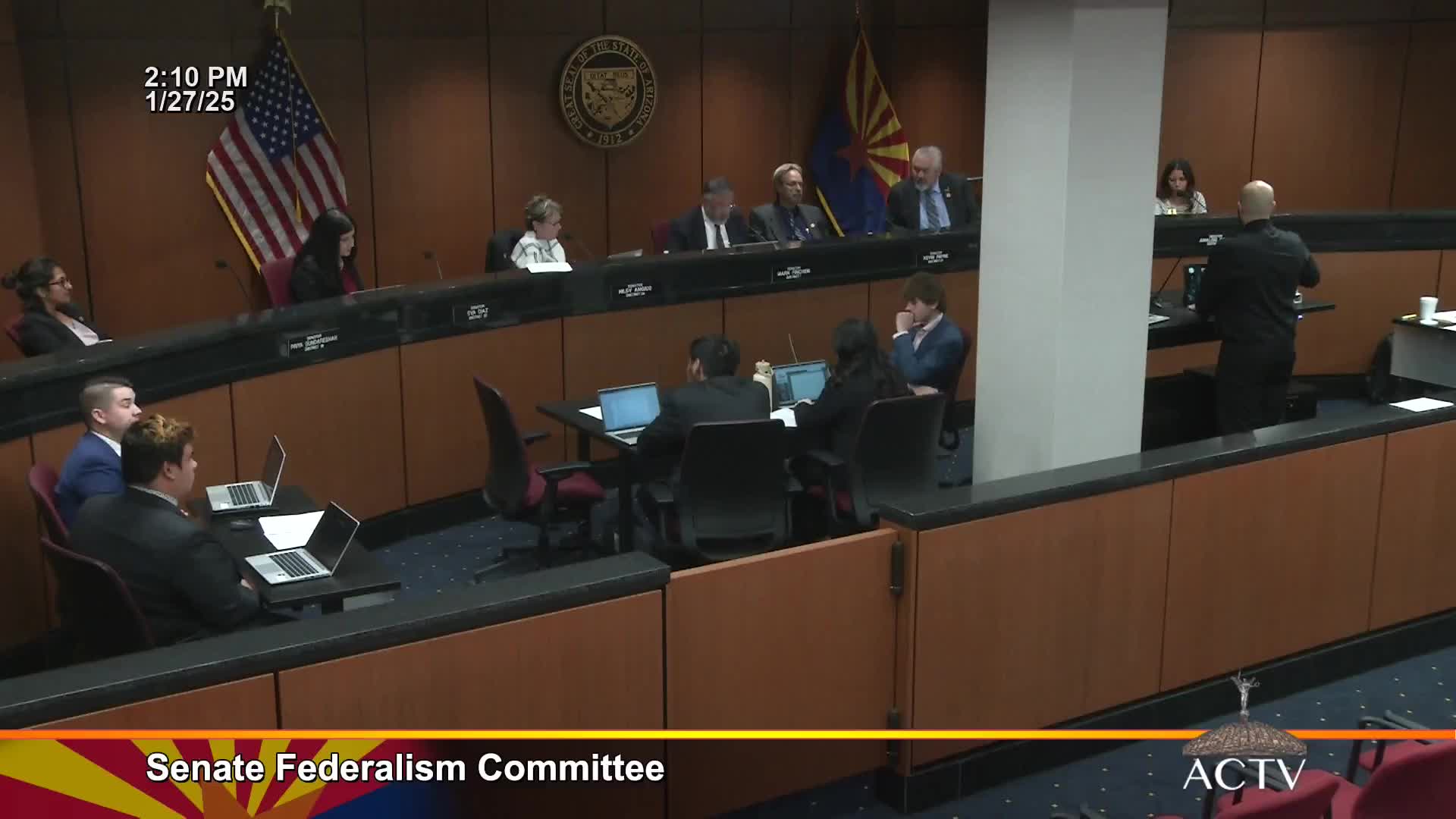Article not found
This article is no longer available. But don't worry—we've gathered other articles that discuss the same topic.

Panel advances bill to require legislative approval and reporting for private sales of Arizona land to federal government

Senate panel advances bill to restrict land conveyances to hostile foreign entities after brief public comment

Rancher tells committee federal agencies lack title to much Arizona land, urges legal review

